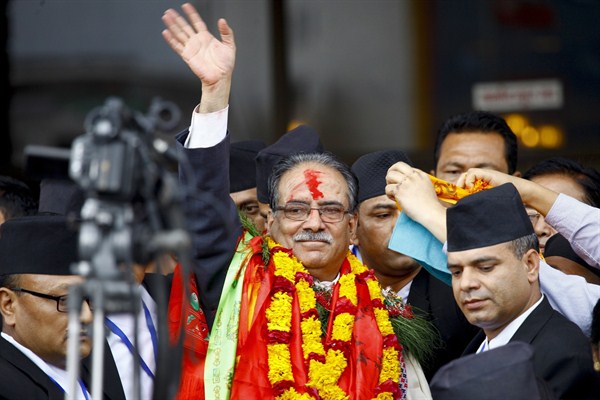Pushpa Kamal Dahal is the prime minister of Nepal again, after its parliament voted earlier this month to elect the former Maoist guerrilla leader, better known by his nom de guerre, Prachanda—“the fierce one.” He first held the country’s top job in 2008, but quit nine months later after a rocky tenure. Dahal is Nepal’s ninth prime minister in eight years, and 25th since 1990, when a pro-democracy movement ended the country’s absolute monarchy and established a parliamentary government. He succeeds K.P. Oli, who, faced with a no-confidence motion, resigned in late July from the office he’d occupied for nine tense months.
But Dahal’s election is unlikely to bring immediate political stability to Nepal, which is still reeling from the effects of the devastating earthquake in April 2015 and a bitter, ongoing fight over its new constitution. The party that secured Dahal’s election in the Constituent Assembly, the Nepali Congress, agreed to a power-sharing deal that allows him to govern for nine months. Then the Nepali Congress’ leader, Sher Bahadur Deuba, will have his own nine-month term as prime minister. Together, Deuba and Dahal are charged with shepherding Nepal to local, provincial and national elections in the next year and a half, according to the country’s new constitution.
“It does not seem that any single party will be in an absolute majority,” says Prashant Jha, a former journalist in Kathmandu now based in New Delhi, and the author of “Battles of the New Republic: A Contemporary History of Nepal.” “Coalition politics is here to stay, and power-sharing games will continue,”

